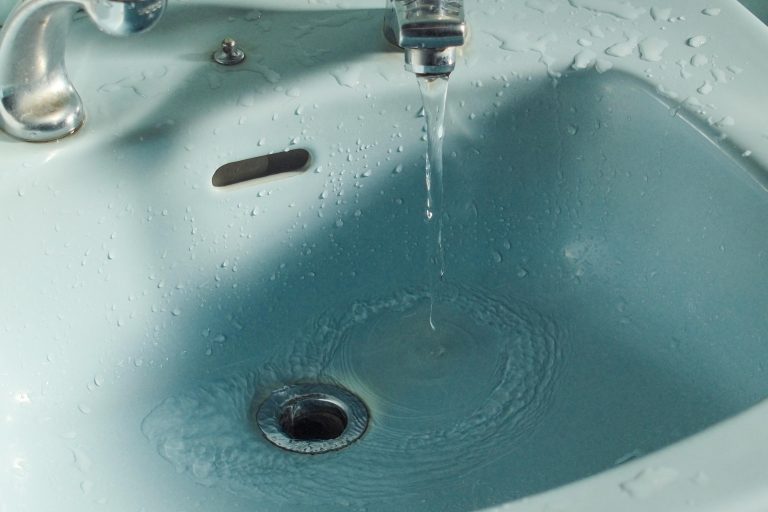There’s nothing quite as frustrating as a kitchen sink that clogs again and again—especially when you’re doing everything “right.” You scrape plates, you don’t pour grease down the drain, and you even use one of those little mesh catchers. So why does the water still back up every few weeks?
The truth is, even careful habits aren’t always enough to stop your kitchen sink from clogging. While some causes are obvious, others are hidden just beneath the surface—literally. If you’re dealing with a sink that clogs regularly, there’s likely more going on than meets the eye. Let’s take a closer look at what could be happening and how to get to the root of the issue.
Residue Buildup Over Time
Even if you don’t pour grease straight down the drain, small amounts still find their way in. That splash of oil from rinsing a frying pan or the leftover sauce from a plate might seem harmless in the moment. But over time, those tiny bits of fat, soap, and food residue build up along the inner walls of your pipes.
This buildup starts slow and sneaky. It hardens with cold water, catches other debris as it passes by, and eventually narrows the passageway until water can’t flow freely. So while you may be doing better than most, even good kitchen habits can’t always compete with years of accumulation.
If your sink drains slowly before it fully clogs, this is usually a sign that buildup is forming somewhere down the line. The good news? It’s fixable—with a deep clean, not just a quick fix.
Hidden Food Particles and “Sink-Safe” Waste
Garbage disposals give people a false sense of security. Just because food scraps disappear doesn’t mean they’re gone for good. Some things—like coffee grounds, eggshells, and fibrous veggies like celery or onion skins—don’t break down well. Instead, they clump, tangle, and get stuck in the pipes below your sink.
What makes it worse is that even tiny food particles can stick to the grease and soap buildup already there. It’s like Velcro for a clog. You may not notice it until the water starts pooling and that unpleasant smell creeps in.
Even if you don’t have a garbage disposal, washing food down the sink instead of tossing it in the trash can lead to the same problems. If your kitchen is the heart of the home, your drain is probably working overtime—and it might just need a break.
Pipe Problems You Can’t See
Sometimes, it’s not what you’re putting down the sink—it’s what’s happening beneath it. Older homes in particular may have outdated plumbing that’s more prone to clogs. Pipes may be too narrow, poorly angled, or made from materials that corrode and roughen over time, making it easier for things to stick.
Tree roots can also be a sneaky culprit, especially if you live in an area with older sewer lines. Roots seek out moisture, and even the tiniest crack in your pipes can invite them in. Once inside, they grow fast and trap anything trying to pass through.
If your sink is clogging frequently, and snaking it doesn’t help for long, it might be time to have a professional inspect the system. A clogged kitchen sink in one part of the house can sometimes point to bigger issues in your drainage system. In places like Acushnet, MA, local experts such as Bass Reddy Rooter can help diagnose deeper plumbing problems.
Soap Scum and Hard Water Complications
Another less obvious clog culprit? Your dish soap. While it’s great at breaking up grease on plates, some soaps leave behind a sticky residue—especially when combined with minerals from hard water. Over time, this creates a kind of sludge that coats your pipes and slows drainage.
Hard water, which contains higher levels of calcium and magnesium, can also cause mineral deposits to build up in pipes. These deposits gradually restrict water flow and give food and grease an even easier surface to latch onto.
If your home has hard water, you might see white spots on your glassware or buildup around faucets. That’s a hint your pipes could be affected too. Installing a water softener can help, but regular drain maintenance is still important to keep things flowing smoothly.
Quick Fixes vs. Long-Term Solutions
It’s tempting to grab a bottle of chemical drain cleaner when your sink clogs. And yes, those products might clear a blockage temporarily—but they often do more harm than good. Harsh chemicals can damage your pipes, especially if used repeatedly, and they rarely remove the whole clog. Instead, they push it further down, where it becomes even harder to deal with next time.
Plungers and DIY tricks have their place, but if you find yourself pulling out the plunger every month, that’s a sign of a deeper problem. Regular professional cleanings can prevent small issues from turning into major headaches, and a proper inspection can uncover long-term solutions.
Whether it’s replacing a section of pipe, removing buildup with a hydro-jetting treatment, or reworking the drainage angle under your sink, investing in the right fix now will save you time, money, and frustration later.
Conclusion: Consistency Beats Clogs
If your kitchen sink keeps clogging despite your best efforts, you’re not alone—and you’re not doing anything wrong. The truth is, most clogs build up over time from everyday habits and hidden issues. The key is to stay proactive. Good maintenance, smart habits, and a little help from professionals can keep your sink running like it should.
Instead of guessing what went wrong every time the water backs up, take the time to understand what’s going on behind the scenes. With the right care and expert support, you can finally say goodbye to constant clogs—and hello to a kitchen that works as hard as you do.









